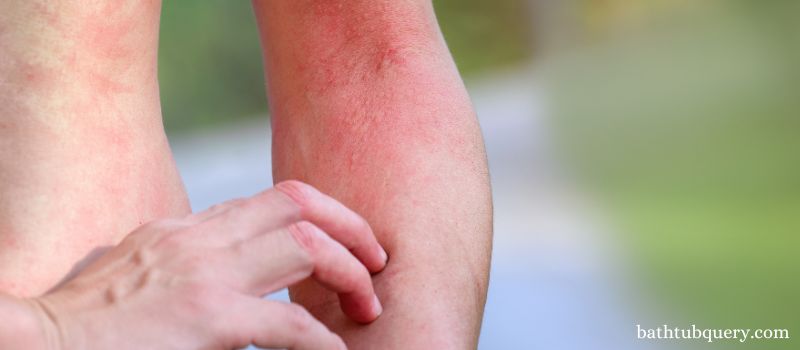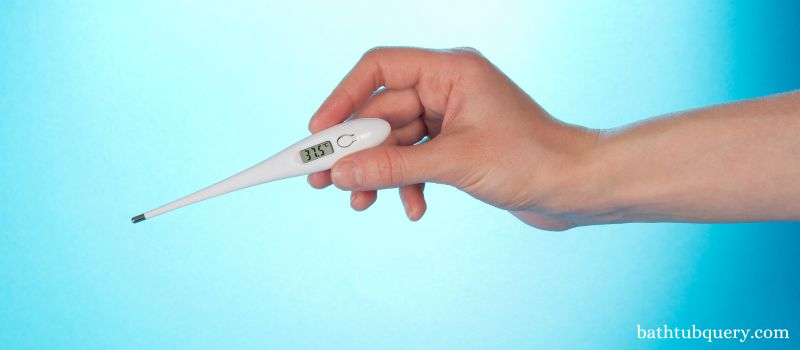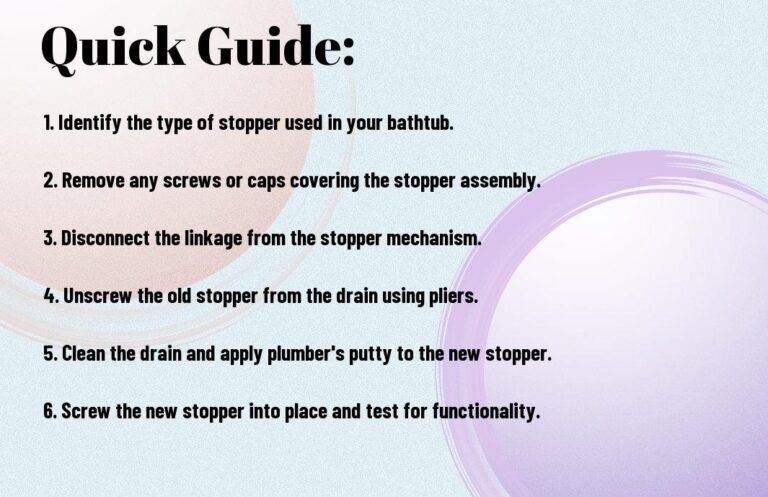What Will Happen If I Stay In The Bathtub For 8 Hours?
Have you ever wondered what would happen if you just soaked in the tub for an entire work day? Maybe the thought of unwinding in warm water for hours sounds appealing, but prolonged bathing can adversely affect your body. Though a nice soak is generally harmless, soaking consecutively for too long can cause potentially harmful side effects.
What Will Happen If I Stay In The Bathtub For 8 Hours?
Get some white vinegar and fill a spray bottle with it. After showering, spritz the tub and shower walls, let sit briefly, then rinse. The acidic vinegar helps dissolve soap scum, minerals, and grime buildup. It’s an economical, non-toxic cleaner.
Sometimes, after a long, stressful day, the idea of lounging in the bathtub for hours sounds downright luxurious. Water has restorative properties, so it’s understandable why one might want to maximize their time in the tub to fully rejuvenate. However, there are some important health and hygiene factors to consider before deciding to take an excessively long bath.

While an occasional lengthy soak may not be an issue, making a habit of spending 8 hours or more continuously in the bathtub can take its toll on your body in various ways.
| Aspect | Impact of 8-Hour Bath | Precautions |
|---|---|---|
| Skin Irritation | Pruning, dryness, itchiness | Use gentle soap, moisturize post-bath |
| Body Temperature | Hypothermia risk as water cools | Keep water warm, avoid staying in cold water |
| Water Intoxication | Imbalance of electrolytes, possible edema | Drink electrolyte-rich beverages |
| Blood Pressure | Dizziness upon standing, lowered pressure | Get up slowly, hydrate with electrolytes |
| Joint Stiffening | Reduced mobility, pain | Shift positions, stretch in and out of the tub |
| Bacteria Growth | Skin infections, folliculitis | Use antibacterial salts or self-sanitizing systems |
| Practical Issues | Difficulty standing, water temp monitoring | Install grab bars, use bath thermometers |
Before you resolve to turn your tub into a personal day spa retreat, let’s take a look at what can happen with prolonged exposure to bathwater. Being aware of the potential risks can help you enjoy long baths safely and comfortably.
Physical Effects on the Body
Soaking in hot water for several hours straight can cause various physiological effects that impact the body both externally and internally. Some may be harmless, but others can have more serious health implications if proper precautions are not taken.
Skin Irritation and Pruning
One of the most visible effects of taking an extended bath is what it does to your hands and feet. After soaking for a while, you’ll notice your fingers and toes become shriveled and wrinkly. This pruning happens when the skin’s outer layer absorbs water, causing swelling. The wrinkles form as a result of the expanded and saturated skin.

While hand and foot pruning is harmless, prolonged water exposure can also dry out and irritate the skin overall. Without proper rehydration and moisturizing, soaking too long can cause itchiness and flaking of the skin. The constant warmth may also dilate blood vessels near the surface, resulting in a reddened rash.
To avoid skin troubles, be sure to use gentle cleansers and replenish moisture after your bath. Keep the water warm, not hot, and take breaks to air out your skin.
Body Temperature Changes
When you soak in hot bathwater for hours, both your internal and external body temperature will be impacted. Initially, the warm water can raise your temperature slightly. However, as your bath starts to cool down, it will draw heat away from your core body over time.

Sitting motionless in increasingly cool water means you’ll eventually get quite chilled. After 8 hours, you may experience concerning hypothermia symptoms like shivering, confusion, and a dangerously low body temperature. Fainting, arrhythmias, and loss of consciousness can occur if you cannot get warm again quickly.
To avoid hypothermia and other temperature-related effects, be sure to add hot water to keep the bath warm periodically. Do not rely solely on cold water to cool down either, as this can shock your system. Getting insufficient heat for that many hours also strains your cardiovascular system.
Water Intoxication/Hyponatremia
Being immersed in water for so long also results in your skin absorbing a substantial amount of the bathwater. This can result in water intoxication or hyponatremia, which is when there is an imbalance of electrolytes in your body.
Electrolytes like sodium, calcium, potassium, and magnesium help regulate muscle function and hydration levels. Soaking for hour after hour diluted these essential minerals and causes cellular swelling and cerebral edema.

Symptoms like headache, cramping, nausea, and mental confusion will present if you take in too much plain water without replenishing lost electrolytes. In severe cases, water intoxication can even become fatal.
Avoid excessive water absorption by getting out periodically to rest and drink electrolyte-rich sports beverages. Limit alcohol intake as well since it exacerbates water retention issues.
Blood Pressure Changes
A bath’s warm, soothing nature naturally dilates blood vessels and slows heart rate, lowering your blood pressure temporarily. This decrease in pressure generates that calm, relaxed feeling you get in a nice hot soak.

However, after 8 consecutive hours, the persistent heat and moisture starts impacting your body’s ability to regulate blood pressure effectively. Getting out of the bath after soaking for that long may cause dizziness, lightheadedness, or fainting as gravity now pulls blood to your extremities.
Avoid the risk of passing out by getting up slowly after prolonged bathing. Cool down gradually and sip electrolytes to stabilize your circulatory system. Dehydration from sweating in the bath can also contribute to pressure drops.
Joint Stiffening
Though your muscles certainly appreciate absorbing the warm water for hours on end, the rest of your joints and connective tissues won’t be quite so happy. Sitting motionless in the tub can cause stiffness in your back, knees, hips, shoulders and more.
The lack of movement lets your other structures besides your muscles tighten and restrict mobility. Trying to get up and walk around after 8 hours can lead to strains or even slips. Those wrinkly waterlogged fingers and toes are also prone to pain and clumsy grasping.
Prevent joint issues by shifting position, stretching legs out, and periodically getting up to move about. After your marathon soak, be sure to slowly stretch and warm up joints before attempting to leave the tub. Assistive devices may be needed to avoid falls as well.
Hygiene Concerns
In addition to the physical effects on your body, remaining in untended bathwater for 8+ hours also introduces some significant hygiene hazards from sitting in stagnant water for that long.
Bacteria Growth in Stagnant Water
Unlike a flowing stream, bathwater sitting for hours provides an ideal breeding ground for microbes and bacteria. Sitting motionless allows these organisms to accumulate on your skin and multiply rapidly in the untreated warm water.
Without proper drainage or periodically changing the water, you may develop infections like folliculitis from prolonged exposure to the accumulating bacteria. Rashes and skin irritation are likely from sitting in the increasingly dirty water.
To prevent this contamination, install a hydrogen peroxide cartridge to self-sanitize bathwater, change it every few hours, or add antibacterial salts. Be sure to wash thoroughly with antimicrobial soap as well after.
Wrinkled Skin Retaining Germs
After prolonged soaking, pruney, wrinkled skin on your fingers and feet also provides the perfect location for germs to hide. The creases and softened skin retain more microorganisms and become difficult to properly disinfect.
This puts you at greater risk for illness and infection if you touch food or your face after being immersed for so long. The wrinkles essentially create little pockets with stagnant germy water if you do not thoroughly dry and disinfect your extremities after the bath.
Be diligent about washing hands and feet with antibacterial soap and scrubbing under nails. Apply antiseptic moisturizer post-bath to control microbial growth.
Practical Considerations To Spend 8 Full Hours In The Tub
Beyond just the effects on your body, attempting to spend 8 full hours in the tub also presents some logistical challenges to consider as well.
Difficulty Getting Out of Tub
Between skin absorption, blood pressure changes, body temperature regulation, joint stiffness, and more, your body will be feeling quite debilitated after sitting motionless in the tub for 8 hours. You may discover getting out from a prone position is now surprisingly difficult.
Your leg muscles will likely feel fairly weak and rubbery initially. The joint stiffness mentioned earlier will also impede any attempts to stand up. The resulting lack of stability means you are at high risk for slipping and falling trying to get up from the slick tub.
Install grab bars and slip-resistant surfaces around your tub to avoid taking a dangerous tumble. You may also need assistance from someone to safely get upright and transition out of the bath. Taking it very slowly is key.
Monitoring Water Temperature
If you want to soak for hours on end, that large quantity of water will need occasional adjustment to maintain a safe temperature. As your bath gradually cools down, you’ll need to add more hot water to avoid getting chilled periodically.
However, after topping it up repeatedly over 8 hours, you also run the risk of it becoming dangerously scalding if you lose track of the precise temperature. 100+ degree water can burn skin in less than a minute. You also want to avoid shocking your system by suddenly adding cold water to an overly hot bath.
Use bath thermometers and an automatic temperature maintenance unit if soaking for prolonged periods. Take breaks from the water to gauge its heat as well. Gradual, controlled changes are safest. Don’t just rely on your senses after they have acclimated.
In Conclusion
A warm bath can help you relax and de-stress after a long day. However, while the occasional lengthy soak is generally fine for most people, making it a habit to stay submerged for 8 consecutive hours or more can have detrimental effects that should not be ignored.
Prolonged exposure to water impacts your circulation, breathing, body temperature regulation, hydration levels, heart rate, skin integrity, and more. It also significantly increases the risk of infections, muscle fatigue, joint pain, lightheadedness, hypothermia, and other concerns. Plus, remaining in a prone, motionless position for that long creates inherent challenges.
While the idea of spending all day immersed in a warm bath may sound idyllic in theory, your body is simply not equipped to handle that duration of exposure. Be mindful of hydrating, replenishing electrolytes, taking breaks, keeping skin healthy, and adjusting water temperature. Ultimately though, limiting your soaking sessions to reasonable increments is the safest approach.
Hopefully, this overview gives you a better understanding of what can happen with extended bathing. While the occasional lengthy hot soak can be beneficial if done properly, making it an all-day habit could put your health at risk. Be kind to your body, and don’t overdo it!
FAQs
How long can a person stay in a bathtub?
Typically, 15-30 minutes is a safe bet for a relaxing bath without skin woes. But hey, if you’re planning a spa day at home, don’t turn into a prune!
Is it OK to bathe for an hour?
An hour’s probably pushing it. Extended soak time might leave your skin supersaturated and could lead to some irritation. So, keep an eye on the clock!
What happens if you soak in water too long?
Stay in that tub for ages, and you’re asking for trouble. Your skin becomes supersaturated, leaving it vulnerable to breakdown. Imagine turning into a human raisin!
Is it OK to bathe for 2 hours?
Two hours? That’s a big no-no. Your skin will get all sorts of mushy, making it prone to tears and irritation. Better to Netflix and chill than marinate in the tub!
See more:
- Do You Really Read A Bathtub Instead Of Shower?
- My Bathtub Gets Dirty Easily: What To Do? Common Causes!
- How Many Showers Does the Average Person Take a Day?
- Is Bathroom Tap Water Safe To Drink USA?
- Can You Eat An Orange In A Bathtub?

Amanda has been designing and installing bathtubs for over 15 years. She first got interested in the bathtub industry while working as an interior designer right after college. During her years as a designer, Amanda was frustrated by the lack of high-quality, unique bathtub options for her clients. This passion led her to start her own bathtub website in 2009.







